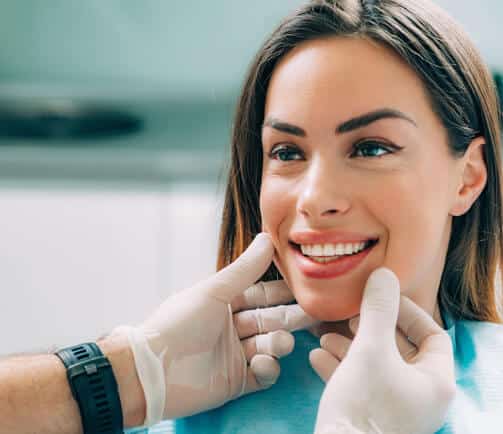Are you guilty of skipping your dental check-ups? It’s easy to let them slip by, but consistency is key for maintaining a healthy smile. In this blog post, we’ll explore the many reasons why regular dental check-ups are so important and how they can prevent bigger problems down the road. So sit back, grab your toothbrush, and let’s dive into the world of oral health!
What is a Dental Check-up?
A dental check-up is an essential part of your oral health care routine. It’s an opportunity to check for signs of decay, gum disease, and other issues that can lead to toothaches and other problems. A regular check-up can help you avoid painful problems in the future and keep your smile looking its best.
If you have any questions about your dental health or would like to schedule a check-up, don’t hesitate to call our office. We’ll be happy to help you get started on a healthy oral care routine.
What are the Benefits of Regular Dental Check-ups?
There are many benefits to having regular dental check-ups, including a healthier smile. Here are just a few of the reasons why:
1. A Healthy Smile is Better for Your Image
A healthy smile is better for your image. People who have healthy teeth and gums look more confident and attractive than those who do not. Dental check-ups can help detect dental issues early and get them corrected before they cause any serious problems.
2. Dental Check-ups Detect Problems Early
Dental check-ups can detect problems early, which can save you time and money. If you catch problems early, you can often correct them without having to go through more extensive procedures or spending more money on dental care.
3. Dental Check-ups Can Help Prevent Tooth Loss
Tooth loss is a major problem that can be prevented with regular dental check-ups. By spotting potential problems early, you can help prevent tooth loss and improve your oral health overall. Plus, if you do experience tooth loss as a result of an issue that was detected during a dental check-up, it will be much easier to replace the lost tooth with a healthy one!
4. Dental Check-ups Can Help You Avoid Serious Injury from Poor Oral Health Care
If you have poor oral health care, you’re at risk of serious injury from falls, bites, and other accidents. A lack of teeth can also make it difficult.
How to Schedule a Dental Check-up?
It’s easy to put off your dental check-up, but it’s important to remember that consistent dental care is key for a healthy smile. Here are some tips on how to schedule a check-up:
1. Talk to your dentist about when would be the best time for you to come in for a visit. They can help you identify any issues or concerns that you may have and make sure that your dental hygiene is up to par.
2. Always bring a current copy of your medical insurance card and any other relevant documents with you when visiting the dentist. This will help them track what services you have received and ensure that all costs are covered.
3. Make an appointment ahead of time by calling the office or online scheduling system and provide the information requested, such as your name, date of birth, and insurance information. This will help reduce wait times and make sure that you get seen by the right dentist as soon as possible.
4. Be sure to brush and floss every day! Not only will this keep your teeth clean, but it can also prevent tooth decay and gum disease. If you have trouble sticking to regular dental care routines, speak with your doctor or dentist about ways they can help support your oral health goals.
Tips for Taking Good Care of Your Teeth at Home
To keep your teeth healthy, follow these simple tips:
1. Regular check-ups are key to keeping your smile healthy and strong. Schedule an appointment with your dentist every six months, regardless of how good your oral hygiene is. A dental check-up can identify any potential problems early on and help you take the necessary steps to care for them.
2. Brush twice a day with soft bristles and use a fluoride toothpaste every day. Avoid sugary foods, drinks, and chewing gum – all of which can damage teeth. Spit out the toothpaste after brushing – it will help reduce plaque build-up on teeth and gums.
3. Floss every night before bedtime – it’s one of the most effective ways to remove plaque and bacteria from between teeth and around the root canal openings in your skulls (or other dental areas). Not flossing may increase your risk for periodontal disease and other oral health problems.
4. Don’t smoke – smoking increases the risk for tooth decay by up to 50%. If you do smoke, try to quit as soon as possible to improve your oral health overall.
Protect your teeth from harsh chemicals, UV light, cold temperatures, acidic foods and beverages, and loud noise by following these tips.
